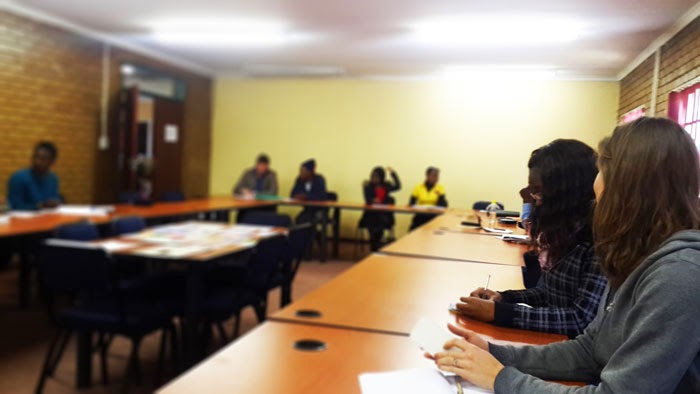This weeks visit was one of first were we would experience participatory design on a first level basis, so you could imagine my excitement...along with some anxiety. Nonetheless, I soldiered on and made sure I had some sort of activity prepared for our second field visit. By prepared I mean i had enough sunblock, water and a hat to keep this pale skin from burning.
After our drop off in Tladi we had a quick greet with the farmers and decided that a focus group would be best suited. The farm site is quite big with 6-7 farmers and more on site, so doing individual interviews would be tricky and take too long, hence the focus group. The focus group went quite well with us discussing and asking questions about not only seedlings but about their environment and things regarding their practices.
A questionnaire was also given to the farmers regarding precedent studies and products, things similar to what I might be designing for them. Originally I thought just giving the farmers space to comment the good and bad of each design would be enough but in the end I had to explain each design a bit to them and take note on what they said about each design.
I walk around the farms at the end gave us the extra insight to how seedlings are grown on the farms and what conditions these farmers work in. It was also interesting to see what types of vegetables they grow and which work better than others.
Here some farmers have tried to protect their seedlings from birds and pests.
The farmers mostly grow their seedlings in tires with some soil. They use nets to cover and protect them, although it does not always work









